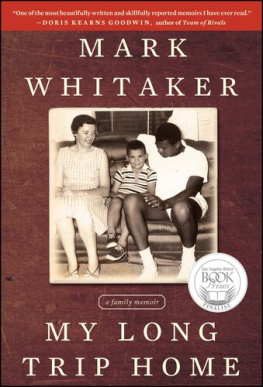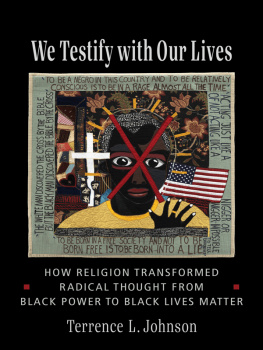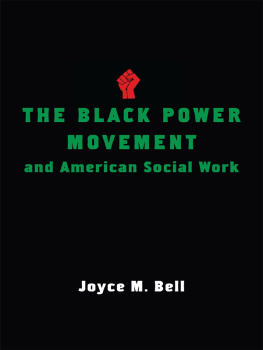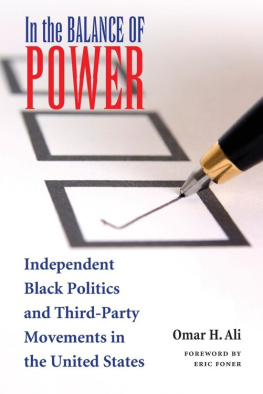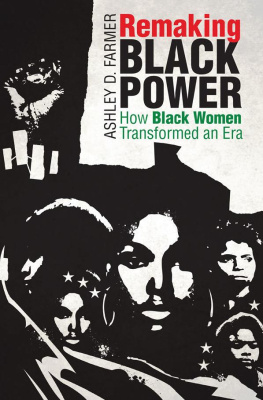Leonard N. Moore - The Defeat of Black Power: Civil Rights and the National Black Political Convention of 1972
Here you can read online Leonard N. Moore - The Defeat of Black Power: Civil Rights and the National Black Political Convention of 1972 full text of the book (entire story) in english for free. Download pdf and epub, get meaning, cover and reviews about this ebook. City: Baton Rouge, year: 2018, publisher: LSU Press, genre: History / Science. Description of the work, (preface) as well as reviews are available. Best literature library LitArk.com created for fans of good reading and offers a wide selection of genres:
Romance novel
Science fiction
Adventure
Detective
Science
History
Home and family
Prose
Art
Politics
Computer
Non-fiction
Religion
Business
Children
Humor
Choose a favorite category and find really read worthwhile books. Enjoy immersion in the world of imagination, feel the emotions of the characters or learn something new for yourself, make an fascinating discovery.

- Book:The Defeat of Black Power: Civil Rights and the National Black Political Convention of 1972
- Author:
- Publisher:LSU Press
- Genre:
- Year:2018
- City:Baton Rouge
- Rating:3 / 5
- Favourites:Add to favourites
- Your mark:
The Defeat of Black Power: Civil Rights and the National Black Political Convention of 1972: summary, description and annotation
We offer to read an annotation, description, summary or preface (depends on what the author of the book "The Defeat of Black Power: Civil Rights and the National Black Political Convention of 1972" wrote himself). If you haven't found the necessary information about the book — write in the comments, we will try to find it.
For three days in 1972 in Gary, Indiana, eight thousand American civil rights activists and Black Power leaders gathered at the National Black Political Convention, hoping to end a years-long feud that divided black America into two distinct camps: integrationists and separatists. While some form of this rift existed within black politics long before the 1968 assassination of Dr. Martin Luther King, Jr., his deathand the power vacuum it createdheightened tensions between the two groups, and convention leaders sought to merge these competing ideologies into a national, unified call to action. What followed, however, effectively crippled the Black Power movement and fundamentally altered the political strategy of civil rights proponents. An intense and revealing history, Leonard N. Moores The Defeat of Black Power provides the first in-depth evaluation of this critical moment in American history.
During the brief but highly charged meeting in March 1972, attendees confronted central questions surrounding black peoples involvement in the established political system: reject or accept integration and assimilation; determine the importance or futility of working within the broader white system; and assess the perceived benefits of running for public office. These issues illuminated key differences between integrationists and separatists, yet both sides understood the need to mobilize under a unified platform of black self-determination. At the end of the convention, determined to reach a consensus, officials produced The National Black Political Agenda, which addressed the black constituencys priorities. While attendees and delegates agreed with nearly every provision, integrationists maintained their rejection of certain planks, namely the call for a U.S. constitutional convention and separatists demands for reparations. As a result, black activists and legislators withdrew their support less than ten weeks after the convention, dashing the promise of the 1972 assembly and undermining the prerogatives of black nationalists.
In The Defeat of Black Power, Moore shows how the convention signaled a turning point for the Black Power movement, whose leaders did not hold elective office and were now effectively barred access to the levers of social and political power. Thereafter, their influence within black communities rapidly declined, leaving civil rights activists and elected officials holding the mantle of black political leadership in 1972 and beyond.
Leonard N. Moore: author's other books
Who wrote The Defeat of Black Power: Civil Rights and the National Black Political Convention of 1972? Find out the surname, the name of the author of the book and a list of all author's works by series.

